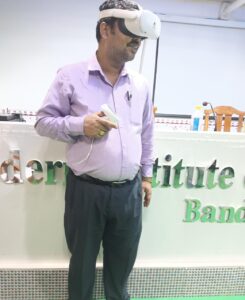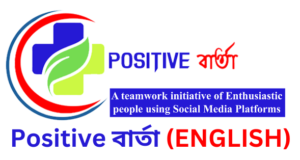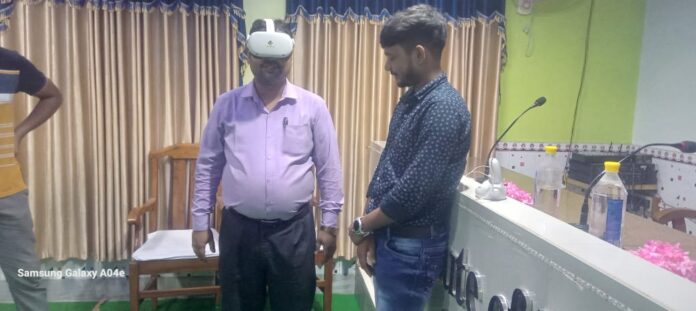Metaverse: The education sector has gone through a sea change in recent years, especially after the COVID-19 lockdown. From Zoom classes in 2020 to entering the Metaverse in the near future, educators and institutions are constantly looking for ways to make distance learning more engaging and interactive.
The Metaverse, a virtual world where people can interact with each other and with digital objects, has the potential to revolutionize education. By using immersive technologies such as virtual reality (VR) and augmented reality (AR), the Metaverse can create learning environments that are more life-like and engaging than traditional online learning platforms.

The Rise of Online Learning
In 2020, the world witnessed the swift transition from traditional classrooms to virtual ones. Zoom and other video conferencing tools became the go-to platforms for educators and students. This shift allowed continuity in education during a challenging time but also highlighted the limitations of online learning. Many educators found it challenging to maintain student engagement and recreate the interactive atmosphere of a physical classroom.
As a result, educators, instructors, and institutions began to explore innovative ways to enhance the online learning experience. This quest for improvement has now led us to the Metaverse.
The Promise of the Metaverse in Education
The Metaverse is a digital universe that combines augmented reality (AR) and virtual reality (VR) to create immersive and interactive experiences. It offers a rich environment where users can interact with each other and digital objects, blurring the lines between the physical and digital worlds. The Metaverse’s potential to transform education is enormous, and its immersive capabilities hold the key to making virtual learning environments more life-like and engaging.

Imagine students donning VR headsets to step into historical events, explore the depths of the ocean, or even travel to distant planets—all from the comfort of their homes. In the Metaverse, the possibilities for experiential learning are limitless. This immersive technology allows learners to engage with subjects in ways that were previously unimaginable.
The Metaverse in Action: A Glimpse of the Future
To showcase the transformative power of the Metaverse in education, the Modern Institute of Engineering and Technology College recently organized a training session on the application of Metaverse technology in the learning process.
During this event, educators and students alike had the opportunity to experience firsthand the potential of the Metaverse. Participants donned VR headsets and were transported to a virtual history class set in ancient Rome. As they explored the virtual city, they could interact with historical figures, witness key events, and even participate in decision-making processes that shaped history. The immersive experience left participants in awe, realizing the immense potential of the Metaverse to make learning engaging and experiential.
Benefits of Metaverse-Based Education
- Engagement: The Metaverse provides a level of engagement that is unmatched in traditional online learning environments. Students are actively involved in their learning, which enhances retention and understanding.
- Experiential Learning: Immersive experiences in the Metaverse allow students to learn by doing. This hands-on approach is particularly effective for subjects that require practical application, such as science, engineering, and art.
- Accessibility: The Metaverse can democratize education by making high-quality learning experiences accessible to students worldwide, regardless of their physical location.
- Customization: Educators can tailor virtual learning environments to suit their curriculum and teaching style, ensuring a personalized learning experience for each student.
- Collaboration: In the Metaverse, students can collaborate with peers from around the world, fostering a global perspective and cross-cultural understanding.
Challenges and Considerations
While the Metaverse offers incredible potential for education, it is not without challenges. There are concerns about privacy, digital equity, and the need for adequate infrastructure to support this technology. Additionally, educators will need training and support to effectively integrate the Metaverse into their teaching methods.







